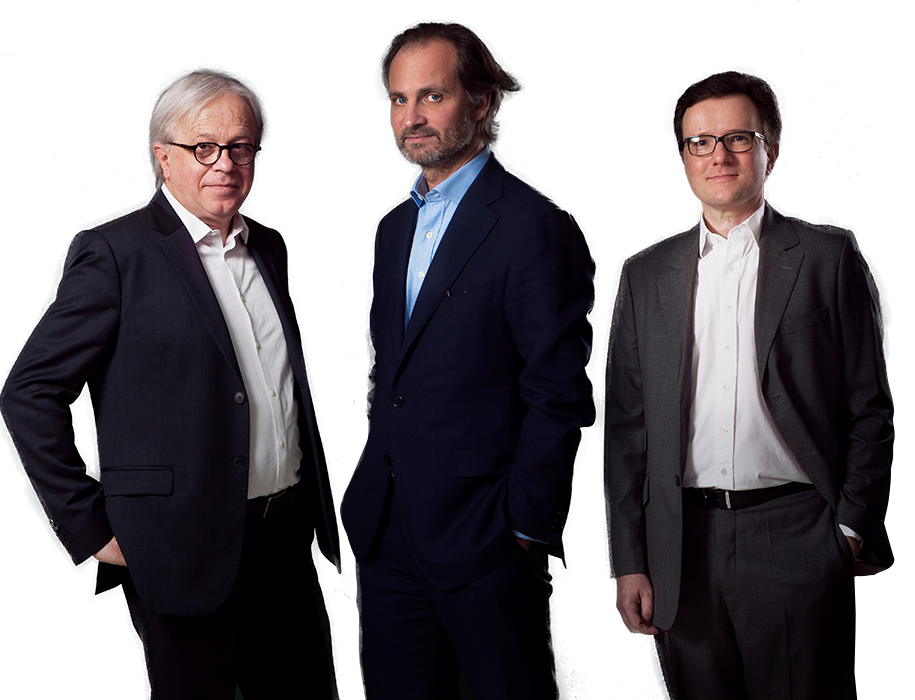
Cutting through organisational complexity
Advising business leaders on change management since 2006
Cutting through organizational complexity

Advising business leaders on change management since 2006
The ceaseless quest for performance, the relentless diversification and regulation of business management, and the need for control generate increasingly complex organisations. The end result is a paradox: the more structures, rules, procedures and management dashboards there are, the less company executives feel in control of them or feel able to make them effective.
‘Rolling out a business strategy’, ‘developing cross-functionality’, ‘securing commitment’, ‘boosting agility’, ‘delivering a successful digital transformation’: just a few examples of goals that are forcing senior executives and their teams to confront organisational complexity.
We set up Grand Angle in 2006 precisely to help them find and action new levers for corporate performance. Decoding the human and cultural dynamics that condition business efficiency, identifying and acting on the pressure points of collective functioning, and creating positive dynamics within the organisation… these are the key contributions we can make.
Taking a wide angle perspective on problems by linking ‘soft’ issues (corporate culture, operating methods, leadership and team dynamics, etc.) and ‘hard’ issues (strategy, organisational structure, processes and results).
Approaching the ‘soft’ issues with the same demanding approach as the ‘hard’ issues by drawing on our knowledge of human and social sciences, operational experiences and track record in top consulting firms to develop the resources needed to help our clients deliver their plans successfully.
Constantly transitioning from strategy to operations to make both these inextricably linked aspects work seamlessly. To cater to the needs of each client or situation, we can work around different roles (consultant, facilitator or coach), all grounded on a deep belief in the power of empathy, doing things differently and working together as a team.

Organisational issues? Weak management? Resistance? Lack of processes? Lack of communication? When an organisation is underperforming, classic explanations like these mask real and far-reaching causes. Because the way we work as groups is akin to timepiece making, which is complex by nature (multiple stakeholders, relationship dynamics, etc.). Gaining a detailed understanding of the contexts in which employees work –and which largely condition their behaviour and strategies – is the only way to grasp how an organisation really works, rather than simply the way it appears to work.
It is only on the basis of this decoding of reality that the representations and stances of those involved can be reconstructed, and that sustainable routes to improvement can emerge.
Professionalism / Rigour: methodical approaches based on social sciences and a clear understanding of business, strategic and operational challenges.
Meetings: our method is based on in-depth meetings and interviews conducted by seasoned / experienced consultants with employees at every level in the business in order to understand the complexity to be decoded.
Respect: the caring confrontation of reality. Sharing without judging; facilitating the dispassionate emergence of tensions.
To achieve organisational change, ‘mechanical’ solutions (a new management team, more targets, KPIs or procedures, coaching, etc.) risk being rapidly neutralised by ‘systemic effects’.
The challenge is therefore to identify ‘pressure points’ where action can be taken to really influence the way stakeholders operate, and pave the way for new balances. Rather like an osteopath who will work deeply on three targeted points to release an entirely immobilised back!
Percussion: focusing efforts on effective, specific and powerful solutions.
Pragmatism: a ‘small steps’ approach to generate sustainable gains, rather than monumental projects that may be reassuring in form, but discouraging in practice.
Proximity: providing teams with close support without taking their place, and doing so, where necessary, by acting as content provider, facilitator or even coach.
Rather than the ‘super-intelligence’ of a few specialists, collective intelligence is more effective at identifying the solutions required for effective implementation of transformational change rooted in reality.
The fastest and most effective way of creating collective energy is to involve as many stakeholders as possible at the earliest opportunity to facilitate the emergence of a shared vision and build initiatives with a high probability of successful implementation!
These ‘first hour’ contributors will use the required operating methods, contribute to their dissemination, and can therefore play an effective role as representatives and ambassadors within the company.
Engagement: from the start of the project, by building an alliance with a number of key stakeholders, including those who oppose the plan. This will help you create a positive energy because individuals will see that their personal contributions are being taken on board.
Energy: by paying attention to form and content in order to clarify the tangible benefits of the approaches adopted, and secure employee engagement in the process.
Experimentation: by including opportunities for stakeholders to experiment with new operating methods potentially useful in the context of their jobs.
Major companies keen to regain their agility, free up their operating methods and reduce complexity
Grown-up businesses and SMEs that are pursuing the challenge of strong growth and must formalise their business culture and organisational structure to maintain performance, while avoiding rigidity
Some examples in videos…
Manufacturing Industry
3,000 employees
IT Services
4,000 employees
Joint Venture
500 employees
B2B Distribution
3 000 collaborateurs
Insurance
2,000 employees
Public Service
1,500 employees
Agro-Industry
3,000 employees
Banking
20,000 employees
Financial Services
20,000 employees
This concept is relentlessly trotted out as if it were an innate collective character trait. ‘People’ would be, by nature, reticent about any change; atavistically entrenched, they will be irrationally conservative.
Referring to this supposed ‘resistance to change’ inhibits an analysis of the deep-rooted reasons that underpin this kind of reticence. However, at Grand Angle, we take the time to decode the reality of the operating methods, and in most cases, we see that these resistant attitudes are reasoned and rational.
It is thus at this point that the real opportunities for discussion, explanation and action present themselves. And not in playing the blame game.
This word is usually used in a negative sense to refer to a lack of courage shown by middle management.
Rather than engage in this process of psychoanalysis, we prefer to identify real and effective levers. How do we give management what it needs to find courage? We always prefer empowerment to courage.
The Grand Angle approach is the opposite of rolling out a prefabricated methodology for systematic application in any circumstances.
Rather like a leading fashion designer, we believe in experience and expertise… and bespoke service!
Paradoxically, companies on a constant quest to make themselves uniquely individual turn out to be conformist in the way they stimulate creativity!
«Let’s see what the bests are doing»: a seductive proposition, isn’t it?
Perhaps, except that the outcome of benchmarking is often uniform and standard solutions… It can then act as a machine that sterilises all intelligence in the situation.
Rather than traditional benchmarking, we prefer the targeted sharing of experiences and inspirational meetings… The kind that help our clients to identify the unique traits of their own business, which they can use to drive growth!
A term that assumes a strange vision of the company, like a series of levels, down which instructions flow! More dangerously, it encourages management behaviour that is reduced to the dreaded ‘FW’ forwarding of messages rather than seeking discussion and productive confrontation.
At Grand Angle, we prefer appropriation to cascading!
Experts in their fields, they share our concept of what consulting should be, the same mindset and the same demanding approach to client service
Address : 122, avenue Charles de Gaulle 92 200 Neuilly sur Seine (Siège social)
Email : contact@grandangle-consulting.com